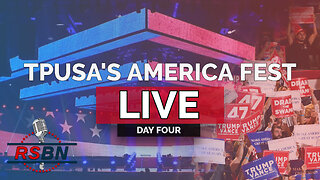Premium Only Content

Unknown Facts About Blockchain, cryptocurrencies and budgetary regulations - The
Encrypted medium of digital exchange A cryptocurrency, crypto-currency, or crypto is a digital currency created to work as a cash through a computer system network that is not dependent on any main authority, such as a government or bank, to maintain or keep it. Specific coin ownership records are stored in a digital ledger, which is a computerized database using strong cryptography to secure transaction records, to manage the production of additional coins, and to confirm the transfer of coin ownership.
Some crypto schemes use validators to keep the cryptocurrency. In a proof-of-stake design, owners installed their tokens as collateral. In return, they get authority over the token in proportion to the quantity they stake. Typically, these token stakers get additional ownership in the token with time through network fees, newly minted tokens or other such reward systems.
Cryptocurrencies generally use decentralized control instead of a central bank digital currency (CBDC). When a cryptocurrency is minted or developed prior to issuance or provided by a single company, it is normally considered centralized. When executed with decentralized control, each cryptocurrency resolves distributed ledger technology, generally a blockchain, that acts as a public monetary transaction database.
Cryptocurrencies use encryption to confirm and safeguard transactions, hence their name. There are currently over a thousand various cryptocurrencies in the world, and their advocates see them as the secret to a fairer future economy. [] Bitcoin, very first launched as open-source software in 2009, is the very first decentralized cryptocurrency. Since the release of bitcoin, many other cryptocurrencies have been produced.
Later, in 1995, he executed it through Digicash, an early form of cryptographic electronic payments which needed user software application in order to withdraw notes from a bank and designate particular encrypted secrets before it can be sent to a recipient. This permitted the digital currency to be untraceable by the releasing bank, the federal government, or any 3rd party.
46, Issue 4). In 1998, Wei Dai published a description of "b-money", defined as a confidential, distributed electronic money system. Soon afterwards, Nick Szabo explained bit gold. Like bitcoin and other cryptocurrencies that would follow it, bit gold (not to be confused with the later gold-based exchange, Bit, Gold) was described as an electronic currency system which needed users to complete a evidence of work function with solutions being cryptographically assembled and published. https://hi.switchy.io/8F8Y
-
 5:35
5:35
Dermatologist Dr. Dustin Portela
18 hours ago $1.10 earnedUnboxing Neutrogena PR Box: Skincare Products and Surprises!
8.82K1 -
 11:20
11:20
China Uncensored
17 hours agoCan the US Exploit a Rift Between China and Russia?
9.89K15 -
 2:08:48
2:08:48
TheSaltyCracker
13 hours agoLefty Grifters Go MAGA ReeEEeE Stream 12-22-24
208K647 -
 1:15:40
1:15:40
Man in America
15 hours agoThe DISTURBING Truth: How Seed Oils, the Vatican, and Procter & Gamble Are Connected w/ Dan Lyons
123K118 -
 6:46:07
6:46:07
Rance's Gaming Corner
17 hours agoTime for some RUMBLE FPS!! Get in here.. w/Fragniac
161K3 -
 1:30:48
1:30:48
Josh Pate's College Football Show
17 hours ago $10.57 earnedCFP Reaction Special | Early Quarterfinal Thoughts | Transfer Portal Intel | Fixing The Playoff
93.6K1 -
 23:55
23:55
CartierFamily
3 days agoElon & Vivek TRIGGER Congress as DOGE SHUTS DOWN Government
134K156 -
 5:43:44
5:43:44
Scammer Payback
2 days agoCalling Scammers Live
226K30 -
 18:38
18:38
VSiNLive
2 days agoProfessional Gambler Steve Fezzik LOVES this UNDERVALUED Point Spread!
162K20 -
 LIVE
LIVE
Right Side Broadcasting Network
10 days agoLIVE REPLAY: President Donald J. Trump Keynotes TPUSA’s AmFest 2024 Conference - 12/22/24
3,413 watching